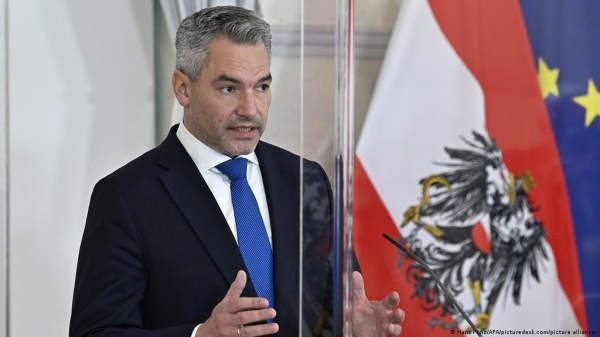The fault lines of the European project deepen

Even Austrian president, Alexander Van der Bellen, criticized the decision saying, “the decision was not the right one. If the Schengen system does not work, why should we block Romania and Bulgaria? Why not allow them to join?”
Austrian political motivations also played a significant role here.
Nehammer fears the rise of FPÖ, a right-wing rival for whom migration and refugees are election workhorses. This helps partially to explain his desperate Schengen veto decision. After all, when politicians are not connecting with voters and their poll numbers are falling, they do and say desperate things.
In the first regional elections since the Justice and Home Affairs Council (JHA) decision, the Austrian chancellor’s calculations have collapsed. The FPÖ still dominates the standings and their lead is growing.
But even if ÖVP (Nehammer’s party) succeeded and gained ground in the polls because of this stunt, it nonetheless demonstrates a deceptive desperation that undermines European solidarity.
In response to Austria’s veto, Romania has embarked on a diplomatic offensive to address concerns and generate support from other EU member states.
Romanian officials emphasize their commitment to European values and security standards, underscoring the nation’s readiness to contribute positively to the Schengen Area. Moreover, the country is actively engaged in dialogue with other EU nations to build a consensus that counters Austria’s real or imagined apprehensions.
But the Romanian government is also in a position to force the hand of Austrian leaders by hitting them where it hurts most: their bottom line.
Using its commercial relationships with OMV, a petrochemical company based in Vienna that privatized PETROM, the crown jewel of Romania’s oil and gas industry, the Marcel Ciolacu-led government refuses to grant the favors requested by OMV for the exploration of a Black Sea field.
A forthcoming JHA Council quarterly meeting at the end of this year will determine whether the Austrians will be forced to place the European project, founded by figures like Adenauer, Schuman, and Spinelli, above geopolitical games and so called national “interests.”
The European Union, already grappling with internal challenges, faces a delicate balancing act in managing the fallout from Austria’s decision.
Striking a balance between regional interests and broader geopolitical realities will be crucial in maintaining the cohesion of the EU.
AdvertisementShare this article:



